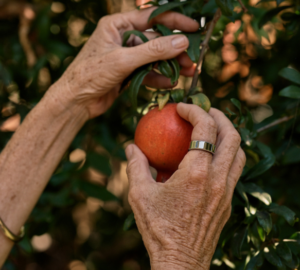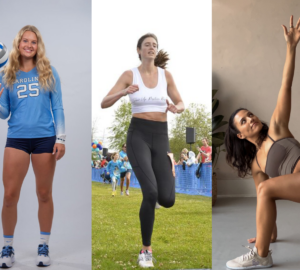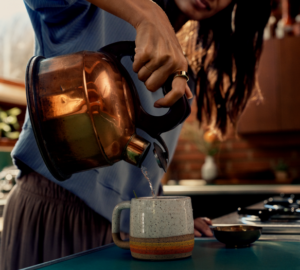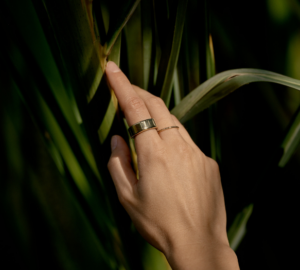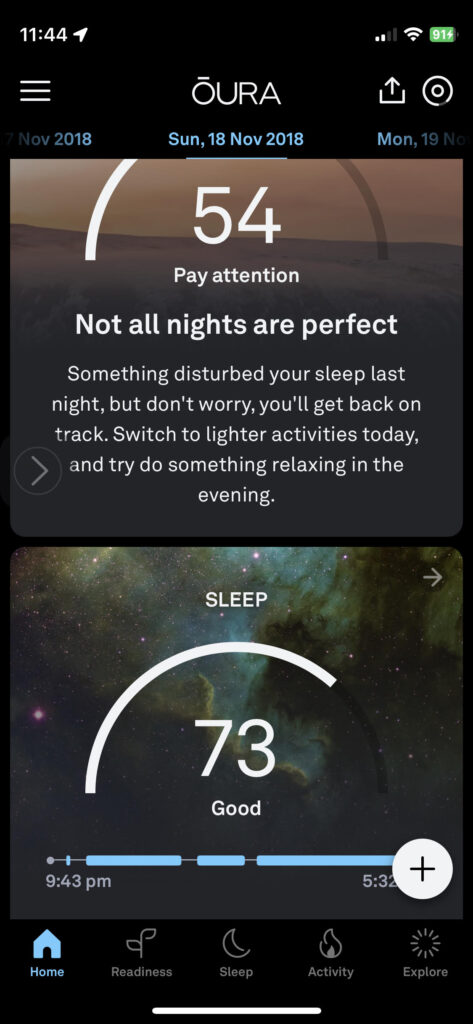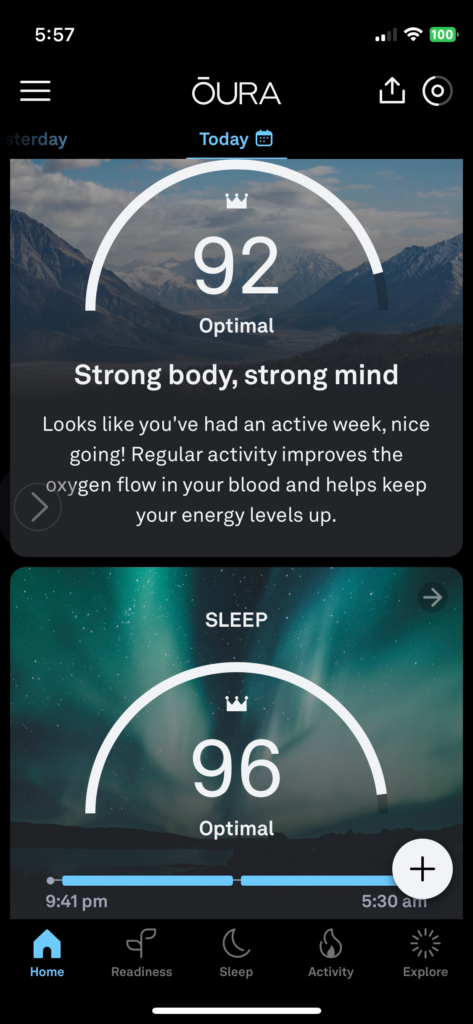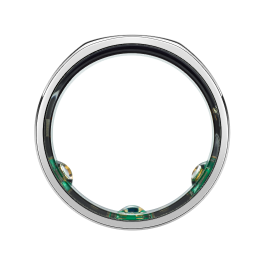Who: Jussi L., 66, originally from Finland and now living in New Zealand, leadership coach
Surprising Oura insight: Jussi was surprised to learn that an evening walk was better for his HRV than a late-night gym session, helping him increase his baseline HRV from 20 to 40.
What made you decide to become an Oura member?
I got an Oura Ring four and a half years ago after experiencing health problems and a very stressful work situation. I had put on weight, and my blood pressure was sky-high. I had insomnia and when I did sleep, it was shallow and I woke up often during the night. I wanted to improve my stress levels and my sleep.
Soon after I started using Oura, I had an accident, resulting in an operation on my right knee. This forced me to slow down, as I was bed-bound for two weeks. During this time I reflected on my health and toxic work environment, using my Oura data to come up with a game plan to improve my health.
I decided to resign from my job, start a workout routine, and change my diet – and I used Oura to help me stay on track.
| “Oura has become my daily compass, keeping me on the right track.” |
What did you start to learn about your health after using an Oura Ring?
I started to observe clear trends and patterns after using Oura for about one month. My sleep was consistently poor because I struggled with insomnia, and my heart rate variability (HRV) was low, around 20.
I noticed that even just a small glass of wine significantly affected my sleep. It was almost counterintuitive: when I had a glass of wine I’d fall asleep quickly, but the quality of my sleep was horrible, and my HRV plummeted.
READ MORE: How Alcohol Impacts Your Sleep
A final key thing I noticed was that working out late in the day destroyed my Sleep Score. I decided to adjust these habits and see how they affected my health.
How have you improved these metrics over the past four and a half years of using Oura?
I mainly changed my diet and evening routine.
My wife is Japanese, and instead of too much meat, pasta, and potatoes, we returned to rice, fish, vegetables, and fruits. Now I eat just a little porridge and a lot of fruit in the morning as breakfast, and then my lunch is filled with home-cooked Japanese meals with a load of fish, miso soup, and green veggies. I also quit alcohol and stopped eating after 5pm.
I started having an extended peaceful evening, instead of late-night gym sessions. My evenings became almost like sanctuaries of insightful deep learning instead of sucking in interruptions from social media and habitual eating. I reduced all distractions and took my social life from evening functions to meaningful daytime collaborations and focused encounters with people that matter.
I would do long bush walks in the late afternoon every day, and on the weekend, I’d do harder cardiovascular workouts during the day.
When making all these changes, my Oura stats started to improve. My HRV soared to 60 for a period, which for my age is terrific, and now hovers around 40.
READ MORE: How To Increase Your HRV (Heart Rate Variability)
What has been the main benefit of using Oura during this process?
Many of us have unconscious bad habits. We don’t realize that the things we are doing on a daily basis are harming our sleep and our health. I practice Buddhism, which has taught me that we can’t change the past, but we can improve the future by adjusting our habits.
Using Oura led to my resignation from a toxic job and pursuing a career I loved. It led me to get a personal trainer and lose 15 kilograms (33 lbs). It also led me to improve my daily habits to replenish my creativity and transform my life.
Oura gave me the science and helped me see the impact of the changes — e.g., the trends, patterns, and symptoms of my life choices. Without those analytics, staying motivated would have been impossible. Oura has become my daily compass, keeping me on the right track.
What’s Your Oura Story?
Everyone’s story is unique, and we’d love to hear yours. Share your story here.
